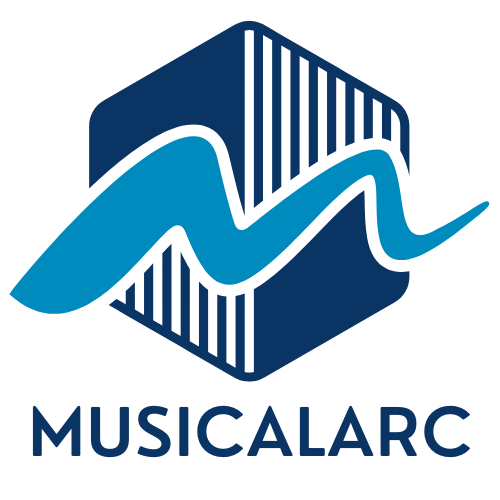In today’s fast-paced job market, standing still is not an option. Career development programs are like GPS for your professional journey, guiding individuals toward new heights and opportunities. Whether you’re a fresh graduate or a seasoned pro, these programs can help unlock hidden potential and transform aspirations into reality.
Table of Contents
ToggleOverview of Career Development Programs
Career development programs serve as structured initiatives designed to enhance employees’ skills and potential. These programs include a variety of offerings, such as workshops, mentorship, and online courses that help individuals advance their careers. Organizations recognize the value of fostering personal growth and often implement these programs to retain top talent.
Mentorship plays a significant role in career development programs. Through one-on-one guidance, experienced professionals assist less experienced individuals, facilitating skill acquisition and networking opportunities. Often, mentorship leads to increased confidence and improved job performance.
Skill-building workshops also contribute to employee growth. Participants engage in interactive sessions covering topics such as leadership, communication, and project management. These workshops not only enhance specific skills but also create a collaborative learning environment.
Another vital component involves online courses. Flexible and accessible, these courses allow employees to learn at their own pace while balancing work responsibilities. Covering a wide range of subjects, online platforms offer continual learning opportunities that align with personal and organizational goals.
Employers benefit from investing in career development programs. According to the Association for Talent Development, organizations that prioritize employee development see a 24% higher profit margin. Increased job satisfaction and employee retention ultimately lead to a more motivated workforce.
Career development programs play an essential role in achieving both personal and organizational success, facilitating a culture of growth and improvement within the workplace.
Importance of Career Development Programs
Career development programs play a vital role in shaping professional trajectories. They bridge skill gaps and prepare employees for future challenges.
Enhancing Employee Skills
Structured initiatives enhance employee skills significantly. Workshops, mentorship, and online courses contribute to this growth. These programs enable individuals to acquire specific competencies, leading to improved performance. Engaging in mentorship fosters tailored guidance that accelerates learning. Workshops create hands-on experiences, allowing for practical application of new skills. Online courses provide flexibility, making it easier for employees to learn at their own pace. Organizations that invest in these programs not only boost employee capability but also create a more skilled workforce.
Increasing Job Satisfaction
Job satisfaction often increases significantly through career development programs. Employees who participate in these programs feel valued, fostering loyalty. Development opportunities encourage personal growth that aligns with employees’ career aspirations. When organizations prioritize skill development, employees experience a stronger connection to their roles. Increased job satisfaction translates into lower turnover rates, enhancing overall workplace morale. By investing in employee development, companies cultivate a positive organizational culture that benefits everyone involved.
Types of Career Development Programs
Career development programs come in various forms to cater to different employee needs and preferences. These programs can enhance skills and overall career trajectories.
Formal Training and Workshops
Structured training sessions boost essential skills and knowledge. Workshops focus on hands-on experiences, encouraging active participation and collaboration among employees. Specific training topics may include leadership, communication, or technical skills. These sessions often feature industry experts, providing insights and valuable perspectives. Formal training programs ensure employees are well-equipped to meet organizational demands and future challenges. Tailored workshops address distinct departmental needs while fostering teamwork and innovation.
Mentorship and Coaching
Mentorship programs pair experienced professionals with mentees for personalized guidance. One-on-one interactions foster trust and open communication, allowing for tailored advice and support. Coaching initiatives often target specific skills or competencies, helping employees achieve defined goals. Regular check-ins facilitate ongoing development and adjustment of strategies. Mentorship enhances networking opportunities, connecting employees to valuable industry contacts. Both mentorship and coaching promote confidence and accountability in the professional journey, ultimately driving success for individuals and organizations.
Implementing Career Development Programs
Implementing career development programs requires careful planning and assessment. Organizations should prioritize understanding employee needs to tailor programs effectively.
Assessing Employee Needs
Understanding employee needs forms the foundation for an impactful career development program. Surveys and interviews reveal skill gaps and career aspirations among employees. Collecting qualitative and quantitative data provides insight into individual preferences. Feedback sessions can help gauge the effectiveness of existing programs. Analyzing performance reviews and goal-setting discussions also identifies areas for improvement. Prioritizing these assessments ensures that training aligns with both personal growth and organizational goals.
Creating a Structured Plan
Creating a structured plan involves outlining specific objectives and resource allocation. Setting clear goals helps maintain focus on employee development. Each plan should articulate expectations, timelines, and outcomes to foster accountability. Incorporating diverse training methods, such as workshops and mentorship, addresses varying learning styles. Assigning resources efficiently supports the successful execution of programs. Regularly reviewing and updating the plan reflects ongoing changes in employee skills and industry trends. Integrating feedback loops strengthens the program’s relevance and effectiveness.
Measuring the Success of Career Development Programs
Measuring the effectiveness of career development programs requires a multi-faceted approach. Organizations often utilize specific metrics to track progress and ensure programs meet goals.
Key Performance Indicators
Retention rates serve as a primary indicator of a program’s success. High retention suggests employees feel engaged and fulfilled. Additionally, measuring employee performance before and after program participation reveals growth in skills and confidence. Participation rates in workshops and mentorship also provide insights; higher involvement typically indicates a program’s relevance and acceptance. Feedback gathered from participants regarding satisfaction can highlight areas for improvement. Collectively, these metrics not only reflect employee development but align with organizational objectives.
Feedback and Adaptation
Continuous feedback shapes effective career development programs. Organizations should regularly solicit input from employees to assess program effectiveness. Surveys can gauge satisfaction and identify specific areas needing adjustment. Open communication channels encourage honest discussions that enhance program content. Adapting programs based on feedback ensures they remain pertinent and impactful. Regular assessments help organizations stay aligned with industry changes and employee expectations. By prioritizing adaptability, organizations foster a culture where development initiatives evolve alongside workforce needs.
Career development programs are essential for fostering a skilled and motivated workforce. They provide employees with the tools and resources needed to navigate their career paths effectively. By investing in these programs organizations not only enhance individual capabilities but also cultivate a culture of continuous learning and growth.
The positive impact on job satisfaction and employee retention cannot be overlooked. As employees engage in mentorship and hands-on workshops they feel valued and empowered. This leads to a more dynamic workplace where everyone thrives.
Ultimately the commitment to career development reflects an organization’s dedication to its employees’ future success. Embracing these initiatives is a strategic move that benefits both individuals and the organization as a whole.




